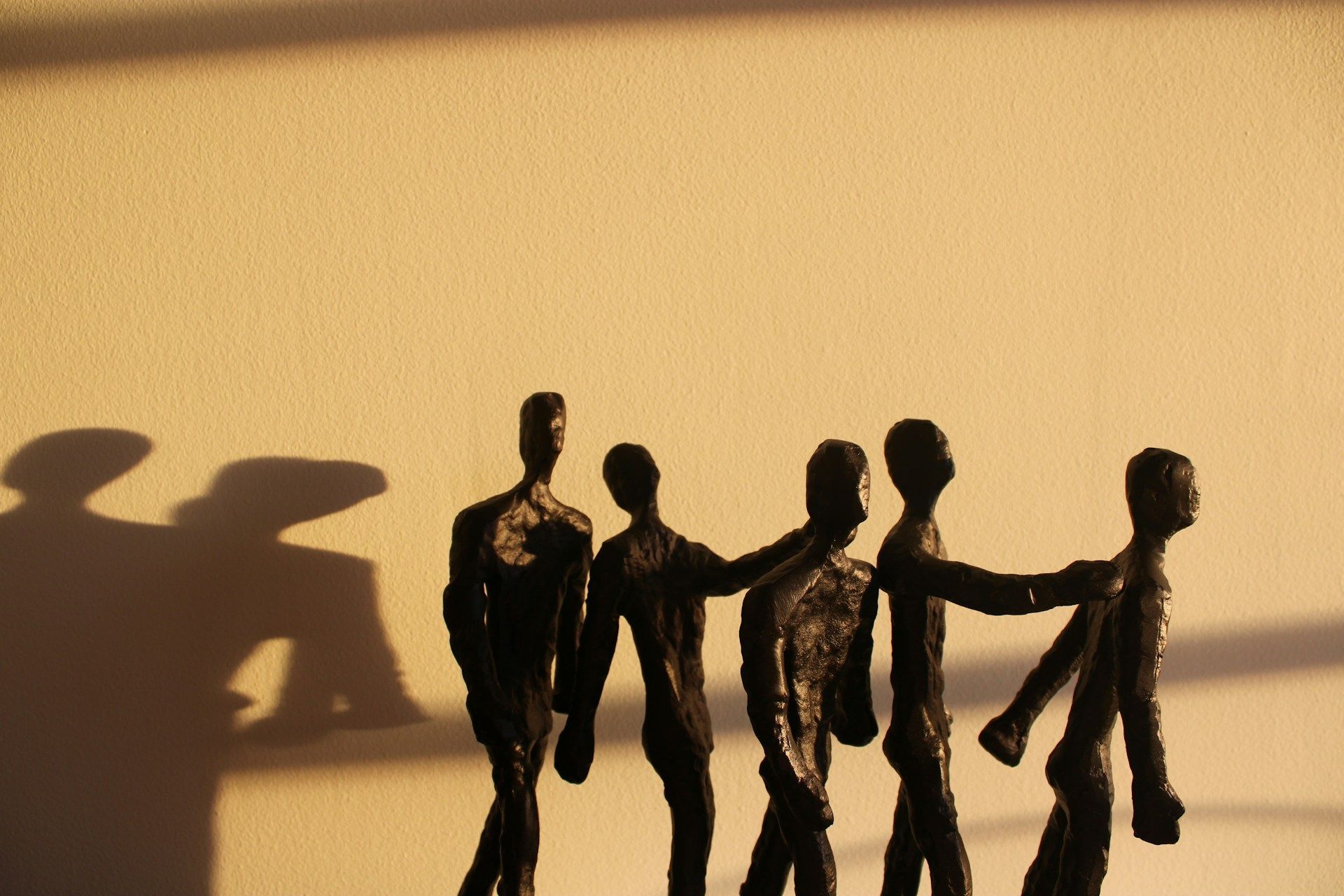Who's influencing who in the group?
Mariyon Slany | November 2025
Complexities of group dynamics and how we influence each other

We believe we are singular
Because we have a belief in will and self guided choices, we are in the modern era where we struggle to see any influences from others as valid. This is part and parcel of an individualistic society says we are the product of our own efforts, and as members of the capitalistic system we have free will as to how we spend our money and our time. These factors all add up to the belief that we are self operating entities that don't need anyone else, let alone that other people are influencing our choices, unlike earlier times in human history where working together in groups or families was fundamental to our survival. This is innate stuff in our psyche so can be hard to shift.
Not wanting to feel that others can tell us what to do
The belief that we are singular creatures then morphs into the second 'rule' of how we operate in group dynamics, which is the idea that someone can't tell us what to do. If you recall being a kid, and being told once, twice, three times - how to behave, what to say in front of the relatives, what to believe about religion, shopping, movies, anything really - then it stands to reason, that once we reach adulthood, we often resent being told what to do, and tend to then 'choose' the opposite position. If we are still unconsciously reacting to being 'told' what to do, then for us, interactions in any group will feel confronting when someone says something assertively or with conviction. We may automatically believe the opposite of what they're saying, or think they are somehow lying.
If I'm overly influenced by others at work, what does that say about my expertise?
The next side of influence is being the accommodating person; simply agreeing with others, and not being assertive enough about what I believe. Have you noticed that sometimes the most assertive communicator in the group is the one that others say 'oh yeah I think that too', or simply the one who speaks up soonest may guide the tenor of the discussion because of the 'follow the herd' mentality that sometimes occurs in groups. We ALL have a desire to be liked by others and to fit into the group. For some people, this is highly pronounced behaviour that influences them all the time in their group interactions and they are completely unable to rock the boat. Again, if we haven't examined what this means for us personally, then we will continue to simply go along with group behaviour, and wonder what went wrong. If I struggle to speak up in the group then I may question my expertise or my value in the group, even if it is fundamental to the group decision making. And if I 'cave in' to someone else's belief, there is the possibility that others see me as less worthy.
Am I leader, collaborator or follower?
Along this line of not wanting others to feel upset around us (the core of being nice) we may have found our persona in group behaviour, which may be leader, collaborator or follower. If we are a leader, then we may have a tendency to use black and white thinking - I'm right and they're wrong and I have to convince them. When I'm a collaborator I am more able to see both sides of the issue and move flexibly with my thinking from one position to another i.e I am not as wedded to feeling right about something. If I'm a follower, I may simply choose a position based on which person makes me feel more comfortable about myself, and that may be due to some basic non-verbals like smiling or inviting behaviour by them towards me. None of these positions are wrong or right, and we can shift between them depending on the culture of the group or our sense of belonging in that particular group, but being aware of your position is important and choosing your behaviour consciously.
Being influenced by others is inevitable if we are humans, interacting in our society. I like to think of it as small tendrils gaining hold inside me, of ideas, of feelings, of realities of others. Some of those tendrils grow a bit, if I water them or focus on them. Others will wither and die. But acknowledging the basic human condition that groups are fundamental to our survival, means I will feel more comfortable knowing what choices I'm making about my behaviour, depending on my role and the culture of the group.


